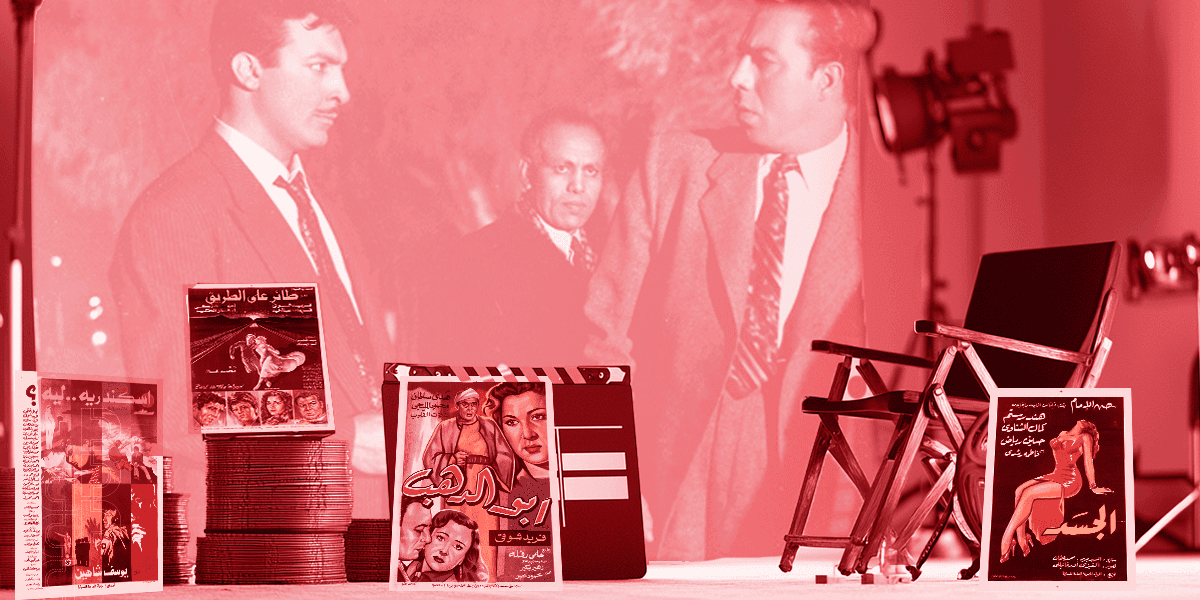
Beyond the Nile: Egyptian Cinema Middle Eastern Impact
Ever wondered why so many Middle Eastern movies look familiar? Believe me, it's not just your imagination.
If you've got friends from other Middle Eastern countries, more often than not, you’ll find them referencing many lines from famous Egyptian films in various life situations (often comedic, since Egyptian comedy films are ICONIC—capital letters iconic).
That’s quite telling, right? Egyptian cinema has been a huge influence on the region's film industry for decades. While the world may know Hollywood, Bollywood, and maybe even Nollywood, the Middle East knows “Cairowood.”
Want to know how it all started and how much influence Egyptian cinema had on Arab cinema? Just keep reading!
Studio Misr: Where It All Started
As you probably know, Studio Misr was founded in 1935 at the hands of the iconic businessman Tal’at Harb. He wanted to help filmmakers create stories that reflected Egyptian culture, society, and values. This marked a turning point in the history of Egyptian cinema, which began with silent movies and documentaries.
Studio Misr quickly became a film factory, churning out movies that would go on to define not just Egyptian cinema but also the identity of the Arab world, and it helped put Cairo on the cinematic map, being called “Hollywood of the East.”
By the 1940s and 1950s, Egyptian cinema was in its prime and had become the dominant film industry in the Arab world. Egypt’s movies were not just popular at home; they were celebrated across the Middle East.
During this time, actors like Rushdy Abaza, Omar Sharif, and Faten Hamama, as well as directors like Youssef Chahine and Salah Abouseif, became internationally known for their films that ranged from romance dramas to social observations to political critiques, all wrapped in engaging stories.
What Influenced Egyptian Cinema’s Growth, Exactly?
So, what was so different about Egypt that pushed it to be a regional and global cinematic hub? Well, there were different political and social factors that made all this possible.
Interest in Arabic-language films was stirred even more deeply when, beginning in the 1940s, the government enacted campaigns to help protect the Arabic language. Then the 1952 revolution and the regime of Gamal Abdel Nasser brought about an even more dramatic change in Egyptian cinema.
A film enthusiast himself, Nasser considered cinema an important ingredient in national identity and political influence. He fostered the creation of films promoting pan-Arabism and the unification of independent Arab nations by providing financing through the government. This wave of state-supported, culturally relevant films positioned Egypt as one of the leading film-producing countries in the world.
When a movement toward privatization started in the 1970s, the industry suffered, but beginning in the 1990s, Egyptian cinema started to experience new vibrancy artistically and international interest in its films; once again, Egypt reclaimed the country's status as one of the most robust forces in the Arab world.
How Did Egyptian Cinema Manage to Become the Voice of the Arab World?
Egyptian cinema became a powerful link across the Arab world, telling stories that felt quite real and relatable, even if the accents or dialects were different. The Egyptian accent itself became part of the fun—after watching a few movies, people from all over could easily imitate it.
These films weren’t just about entertainment; they got people thinking about shared challenges, often nudging social change. Through themes of unity and solidarity, they tackled everything from poverty and illiteracy to class divides and family dynamics, all while reflecting the complexities of human nature.
Egyptian cinema's influence stretched beyond Egypt, with films reaching the wider Middle East and North Africa. This inspired filmmakers in countries like Lebanon, Syria, and Morocco to explore new styles and genres, leading to a blossoming of local film industries.
So, yeah, focusing on Arab experiences and honoring cultural roots has led Egyptian cinema to become a voice for the entire region, leaving an impact that still resonates.
Who are Some of the Famous Stars that Defined Arab Cinema?
Egyptian stars were (and still are) celebrated across the Arab world.
Back in the day, a legendary actress like Faten Hamama, known as "The Lady of the Arabic Screen," played roles that spoke deeply to women across the region about strength, resilience, and grace.
Meanwhile, Omar Sharif went on to international fame with roles in Hollywood films like “Doctor Zhivago” and “Lawrence of Arabia,” but he remained a hero at home in Egypt and a beloved icon in the Arab world.
Today, acting icons like Khaled El-Nabawy, Amir El-Masry, Khalid Abdallah, and many more have gone on to achieve international fame through renowned global films.
And there you have it!
As you can see, Egyptian cinema crossed borders and became the voice of the Arab world by capturing universal themes of love, hardship, humor, and resilience that resonate deeply across cultures. It shows the world the beauty of storytelling that goes beyond words, shaping our shared culture with unforgettable characters and scenes.
Enjoyed this article?
Discover more insights and stories from our blog. Stay updated with the latest trends in digital innovation.